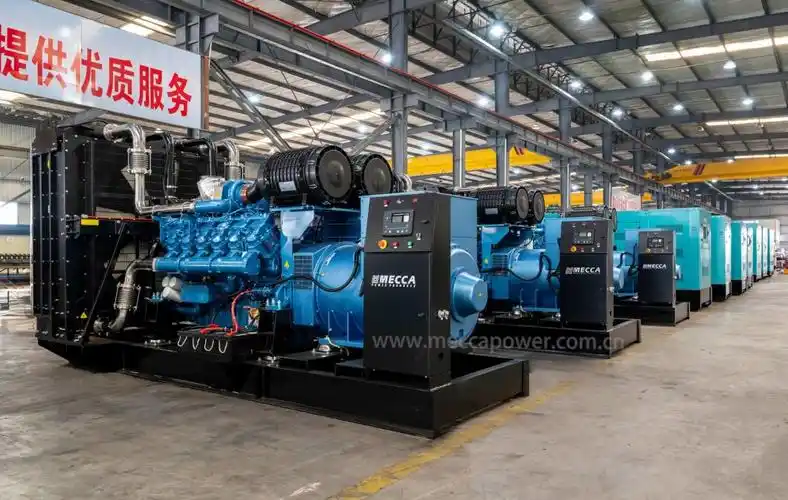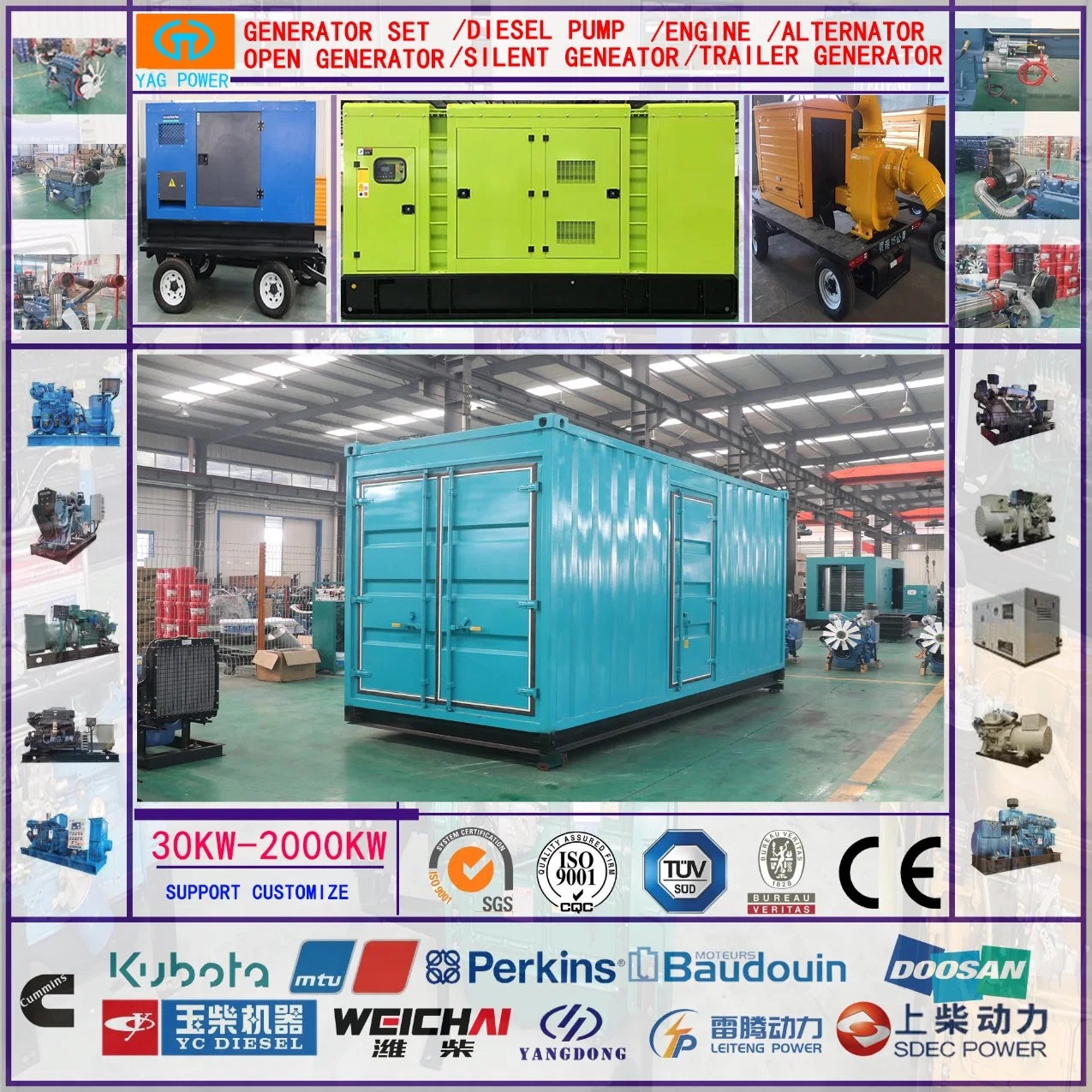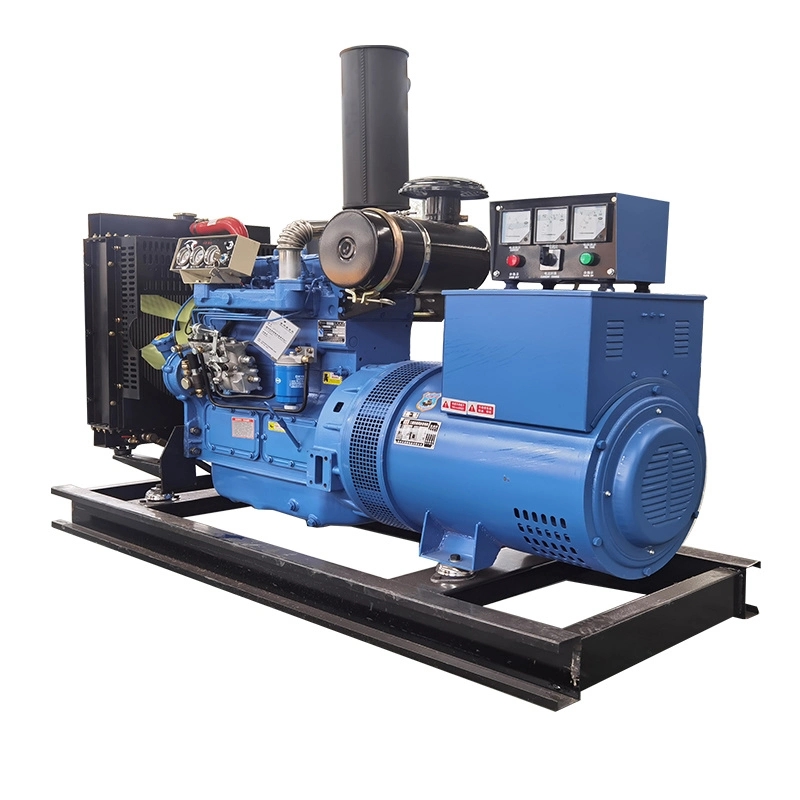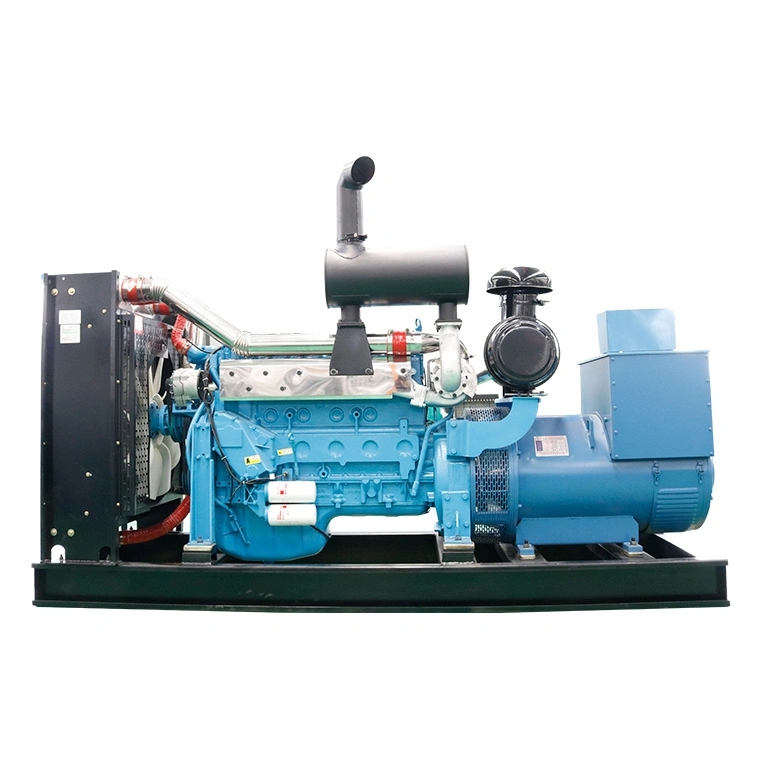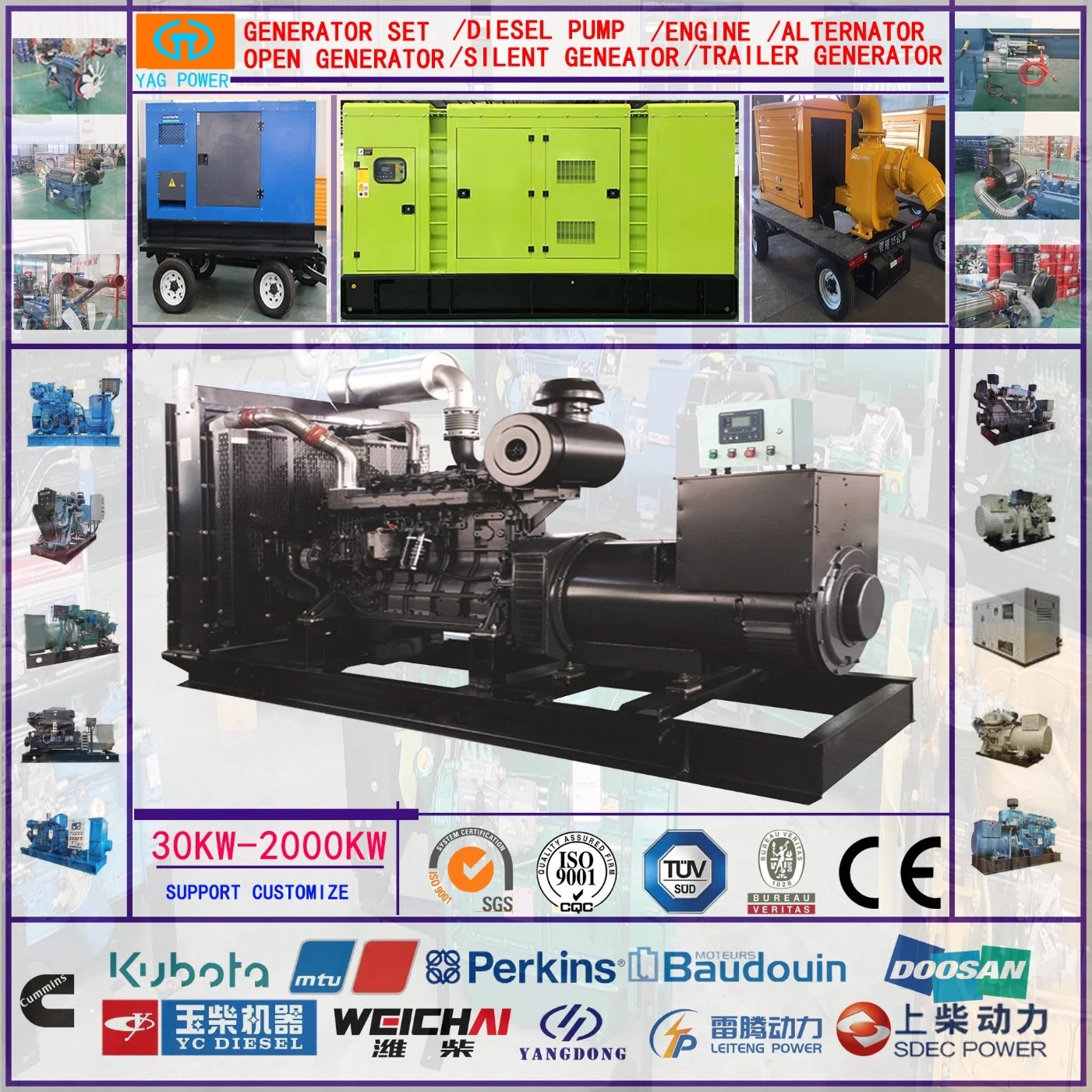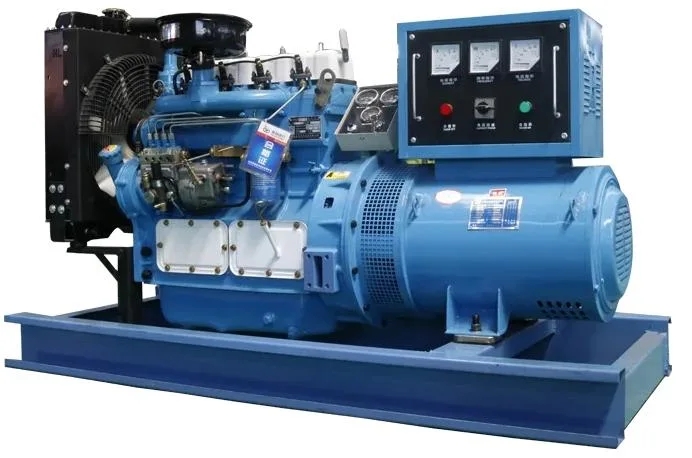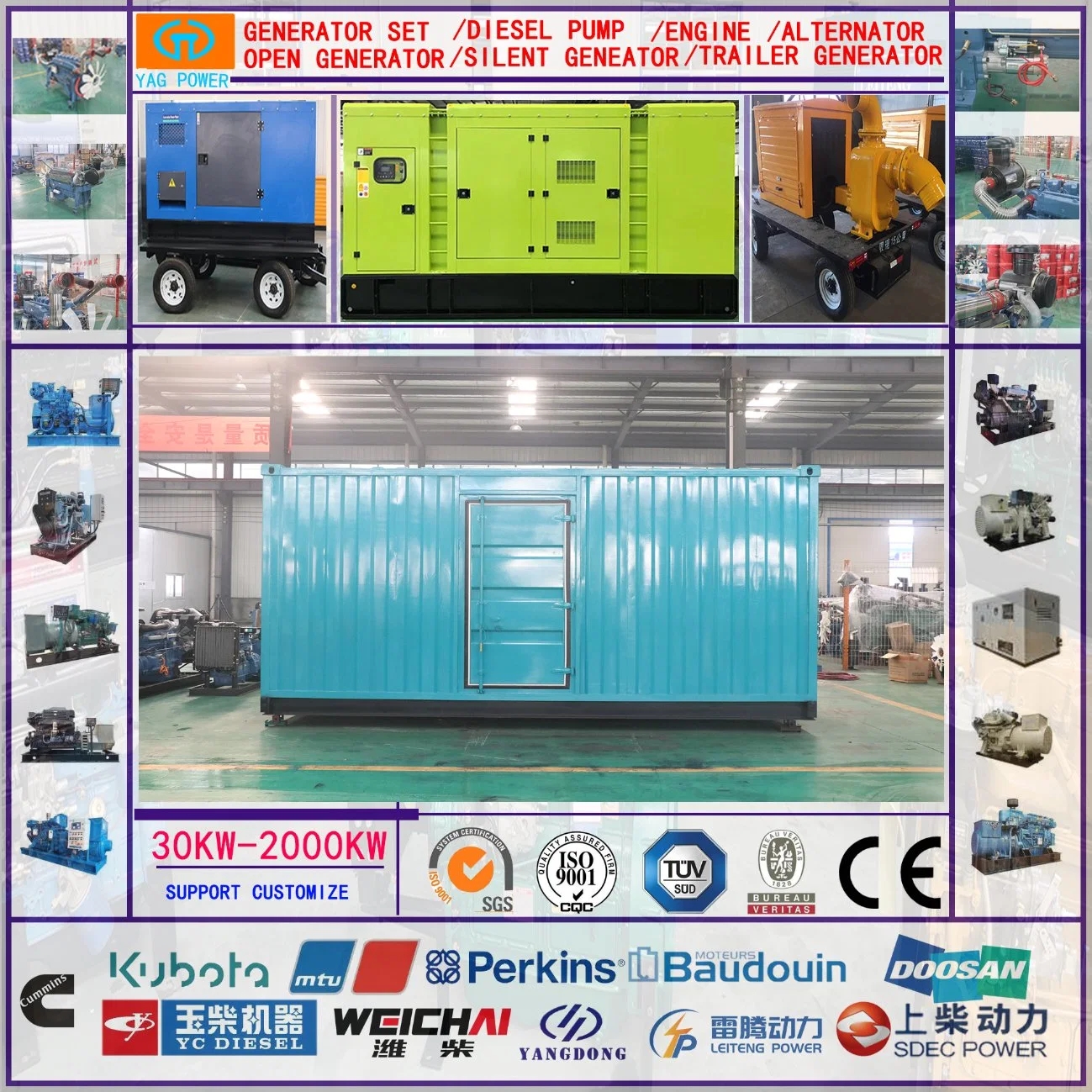Table of Contents
Toggle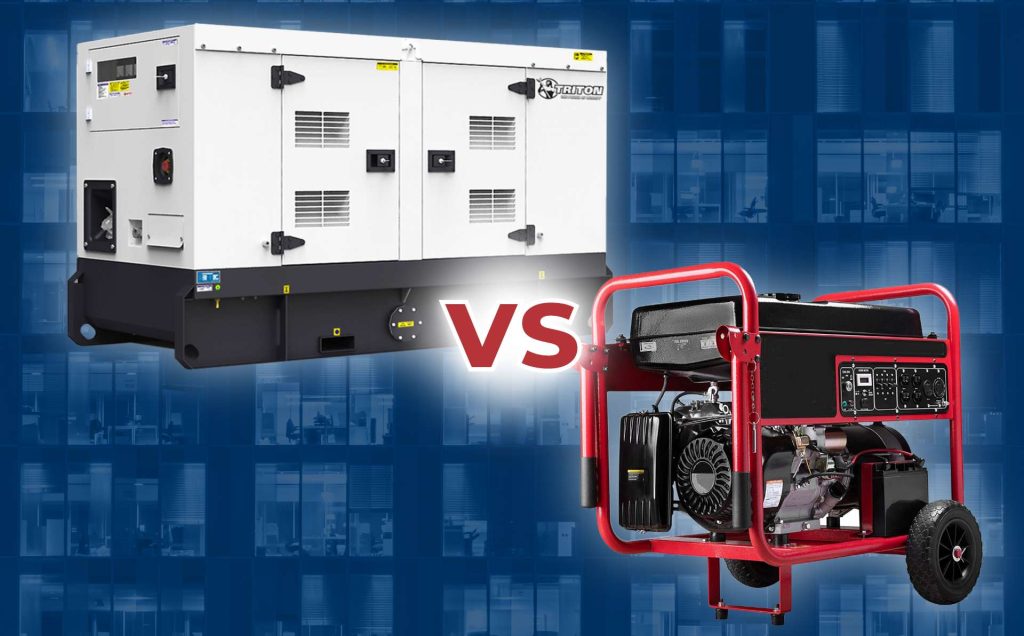
ComparisonWhen faced with power outages or the need for a reliable backup energy source, selecting the appropriate generator is crucial. Two prominent options dominate the market: gasoline and diesel generators. While both offer distinct advantages, determining which one aligns best with your specific requirements demands a thorough evaluation. This comprehensive guide delves into the nuances of gasoline and diesel generators, equipping you with the knowledge to make an informed decision.
Fuel Efficiency: Maximizing Energy Output
Fuel efficiency is a paramount consideration when evaluating generators, as it directly impacts operational costs and environmental footprint. In this regard, diesel generators emerge as the clear frontrunner. Thanks to their compression-ignition design, diesel engines extract more energy from each gallon of fuel compared to their gasoline counterparts. This superior fuel economy translates into longer runtimes and reduced fuel consumption, ultimately saving you money over the generator’s lifespan.
Diesel Generators: The Epitome of Efficiency
Diesel generators excel in fuel efficiency due to their unique operating principles. Unlike gasoline engines, which premix fuel and air before compression, diesel engines introduce and compress air separately, injecting fuel only after the compression stroke. This process allows for more complete combustion, resulting in greater energy extraction from the fuel.
Manufacturers typically provide specific fuel consumption (SFC) numbers, enabling you to compare the efficiency of different models. As a general rule, diesel generators can achieve an impressive 40% efficiency within their optimum operating range, often up to 80% of their total load capacity. This means that for every 100 units of energy input, 40 units are delivered as usable output, minimizing energy losses.
Gasoline Generators: Convenience at a Cost
While gasoline generators may not match the fuel efficiency of their diesel counterparts, they offer convenience and accessibility. Gasoline is readily available at most fuel stations, making it an attractive option for those who prioritize ease of refueling. However, this convenience comes at a cost, as gasoline generators typically consume more fuel per unit of energy output, resulting in higher operational expenses over time.
Power Output and Load Handling
Power output and load handling capabilities are critical factors when selecting a generator, as they determine the appliances and equipment you can reliably power during an outage or emergency situation.
Diesel Generators: Workhorses for Heavy-Duty Applications
Diesel generators are renowned for their ability to handle demanding loads for extended periods. Their robust construction and torque-rich performance make them ideal for powering heavy machinery, industrial equipment, and large residential or commercial buildings. Whether you require a standby generator for your business or a reliable source of power for a remote worksite, diesel generators offer the muscle and endurance to meet your needs.
Gasoline Generators: Portable and Versatile
While gasoline generators may not match the sheer power output of their diesel counterparts, they excel in portability and versatility. Compact and lightweight, these generators are well-suited for applications that demand mobility, such as construction sites, outdoor events, or recreational activities like camping or tailgating. Additionally, gasoline generators often produce less noise than their diesel counterparts, making them a preferred choice for residential settings where noise pollution is a concern.
Maintenance and Longevity
Proper maintenance is essential for ensuring the longevity and optimal performance of any generator. In this regard, diesel and gasoline generators exhibit distinct characteristics that warrant consideration.
Diesel Generators: Robust and Low-Maintenance
One of the key advantages of diesel generators is their inherent simplicity and durability. Unlike gasoline engines, diesel generators do not require spark plugs or carburetors, reducing the number of components that may require frequent maintenance or replacement. Additionally, diesel engines are renowned for their ruggedness, capable of withstanding demanding conditions and heavy loads without compromising their lifespan.
With proper care and adherence to manufacturer-recommended maintenance schedules, diesel generators can provide reliable service for decades. Regular oil changes, air filter replacements, and occasional overhauls are typically all that is required to keep these workhorses running smoothly.
Gasoline Generators: Affordable but Require Attentive Care
While gasoline generators are generally more affordable than their diesel counterparts, they may require more frequent maintenance to ensure optimal performance and longevity. Components such as spark plugs, carburetors, and ignition systems are susceptible to wear and tear, necessitating periodic replacements or adjustments.
Additionally, gasoline has a shorter shelf life compared to diesel fuel, which can lead to issues such as gum formation and clogged carburetors if the generator is left idle for extended periods. To mitigate these concerns, it is essential to follow the manufacturer’s recommendations for fuel storage and maintenance intervals.
Safety Considerations
Safety should be a paramount concern when operating any generator, and the fuel type plays a crucial role in determining potential hazards.
Diesel Generators: Reduced Flammability Risks
Diesel fuel is inherently less flammable than gasoline, making diesel generators a safer choice in environments where fire hazards are a concern. The absence of spark plugs in diesel engines further reduces the risk of ignition, contributing to a lower overall fire risk. However, it is still essential to follow proper fuel storage and handling protocols, as diesel spills can pose environmental risks and require containment measures.
Gasoline Generators: Increased Flammability and Ventilation Needs
Gasoline is a highly flammable substance, and its vapors can ignite easily in the presence of an ignition source. As a result, gasoline generators require strict adherence to safety protocols, including proper ventilation to prevent the buildup of potentially explosive fumes. Additionally, gasoline storage and handling demand extra caution to minimize the risk of spills or leaks, which could lead to fire hazards.
Environmental Impact
As environmental concerns continue to gain prominence, the impact of generators on air quality and emissions has become an increasingly important consideration.
Diesel Generators: Improving Emissions Standards
Historically, diesel generators have been associated with higher emissions of particulate matter and nitrogen oxides. However, advancements in engine technology and the implementation of stringent emissions regulations have significantly reduced the environmental impact of modern diesel generators. Many contemporary models now meet or exceed EPA standards, making them a more eco-friendly choice than their predecessors.
Gasoline Generators: Lower Emissions but Potential Noise Concerns
Gasoline generators generally produce lower levels of harmful emissions compared to their diesel counterparts. Natural gas, a common fuel for gasoline generators, emits lower amounts of sulfur, nitrogen, and carbon dioxide, making it a more environmentally friendly option. However, gasoline generators can be noisier than their diesel counterparts, potentially causing disturbances in residential areas or noise-sensitive environments.
Fuel Availability and Storage
The availability and storage considerations of fuel can significantly impact the practicality and reliability of a generator, especially during emergencies or in remote locations.
Diesel Fuel: Widespread Availability and Extended Shelf Life
Diesel fuel is widely available across most regions, making it a convenient choice for refueling generators. Additionally, diesel fuel has a longer shelf life compared to gasoline, allowing for extended storage periods without significant degradation. This characteristic makes diesel generators an attractive option for emergency preparedness or situations where fuel availability may be limited.
However, it is essential to note that during severe weather events or natural disasters, diesel fuel delivery may be disrupted, necessitating on-site storage or contingency plans.
Gasoline: Readily Accessible but Shorter Shelf Life
Gasoline is readily available at most fuel stations, making it a convenient choice for powering generators in urban and suburban areas. However, gasoline has a shorter shelf life compared to diesel fuel, typically ranging from 3 to 6 months before degradation occurs. This limitation necessitates more frequent fuel rotation or the use of fuel stabilizers to maintain the generator’s readiness for operation.
Cost Considerations
While fuel efficiency plays a significant role in determining the overall cost of ownership, several other factors contribute to the overall expenses associated with gasoline and diesel generators.
Diesel Generators: Higher Upfront Investment, Lower Operational Costs
Diesel generators typically carry a higher upfront cost compared to their gasoline counterparts. This initial investment can be attributed to the robust construction, advanced fuel injection systems, and stringent emissions control technologies employed in modern diesel engines. However, the superior fuel efficiency and lower maintenance requirements of diesel generators can offset this higher initial cost over the generator’s lifespan, resulting in lower operational expenses.
Gasoline Generators: Affordable Upfront, Higher Fuel and Maintenance Costs
Gasoline generators are generally more affordable upfront, making them an attractive option for those on a tight budget. However, the higher fuel consumption and more frequent maintenance requirements can result in higher operational costs over time. Additionally, the shorter shelf life of gasoline may necessitate more frequent fuel replacements, further adding to the overall expenses.
Noise Levels: Minimizing Disturbances
The noise level produced by a generator can be a critical factor, particularly in residential or noise-sensitive environments.
Diesel Generators: Quieter Operation with Modern Advancements
Traditionally, diesel generators have been associated with higher noise levels due to their robust construction and combustion characteristics. However, advancements in engine design and noise-reduction technologies have significantly improved the acoustic performance of modern diesel generators. Many contemporary models now operate within acceptable noise levels, making them suitable for use in residential or commercial settings.
Gasoline Generators: Inherently Quieter but Noise Levels Vary
Gasoline generators are generally quieter than their diesel counterparts, owing to their smaller size and lower combustion pressures. However, noise levels can vary significantly among different models and manufacturers, with some gasoline generators still producing substantial noise that may be disruptive in noise-sensitive environments.
Portability and Versatility
Depending on your intended application, the portability and versatility of a generator can be a crucial consideration.
Diesel Generators: Robust but Less Portable
Diesel generators are typically larger and heavier than their gasoline counterparts, making them less portable. While some portable diesel models are available, they are generally better suited for stationary or semi-permanent installations, such as backup power systems for commercial or industrial facilities.
Gasoline Generators: Lightweight and Highly Portable
Gasoline generators excel in portability, with many models designed for easy transportation and use in remote locations. Their compact size and lightweight construction make them ideal for powering tools and equipment on construction sites, providing backup power during outdoor events or recreational activities, or serving as emergency backup power sources for residential applications.
Application-Specific Considerations
While the general characteristics of gasoline and diesel generators provide a broad overview, it is essential to consider your specific application and requirements when making a final decision.
Residential and Emergency Backup Power
For residential and emergency backup power applications, both gasoline and diesel generators can be suitable options. Gasoline generators offer portability and affordability, making them a popular choice for homeowners seeking a reliable backup power source during outages. However, diesel generators may be preferable for those requiring extended runtime or the ability to power larger loads, such as entire households or small businesses.
Commercial and Industrial Applications
In commercial and industrial settings, where power demands are typically higher and continuous operation is essential, diesel generators often emerge as the preferred choice. Their ability to handle heavy loads, superior fuel efficiency, and extended runtime make them well-suited for powering critical systems, machinery, and equipment.
Remote Worksites and Off-Grid Living
For remote worksites or off-grid living situations, both gasoline and diesel generators can be viable options, depending on specific requirements. Diesel generators offer extended runtime and fuel efficiency, making them suitable for powering equipment and tools in remote locations. Gasoline generators, on the other hand, provide portability and versatility, which can be advantageous for mobile worksites or recreational activities.
Consulting Professionals for Tailored Solutions
While this comprehensive guide provides a solid foundation for understanding the differences between gasoline and diesel generators, it is crucial to seek professional advice when selecting a generator for your specific needs. Experienced professionals can assess your unique requirements, consider factors such as local regulations, fuel availability, and environmental conditions, and recommend the most suitable generator for your application.
By consulting with experts in the field, you can ensure that you make an informed decision, maximizing the efficiency, reliability, and cost-effectiveness of your generator investment.
In conclusion, the choice between a gasoline or diesel generator ultimately depends on a careful evaluation of your power needs, budget constraints, and operational requirements. Both options offer distinct advantages and trade-offs, and the decision should be tailored to your specific circumstances. By considering factors such as fuel efficiency, power output, maintenance requirements, safety considerations, environmental impact, and application-specific needs, you can make an informed decision that ensures reliable and cost-effective power generation for years to come.




